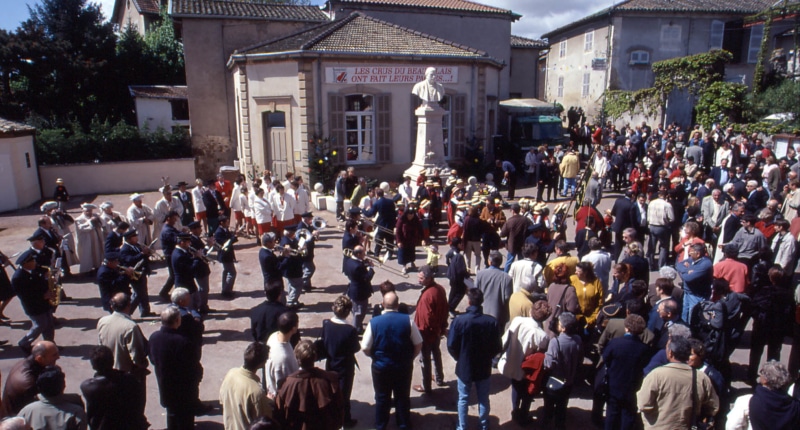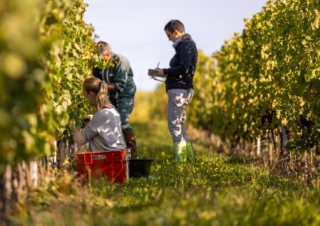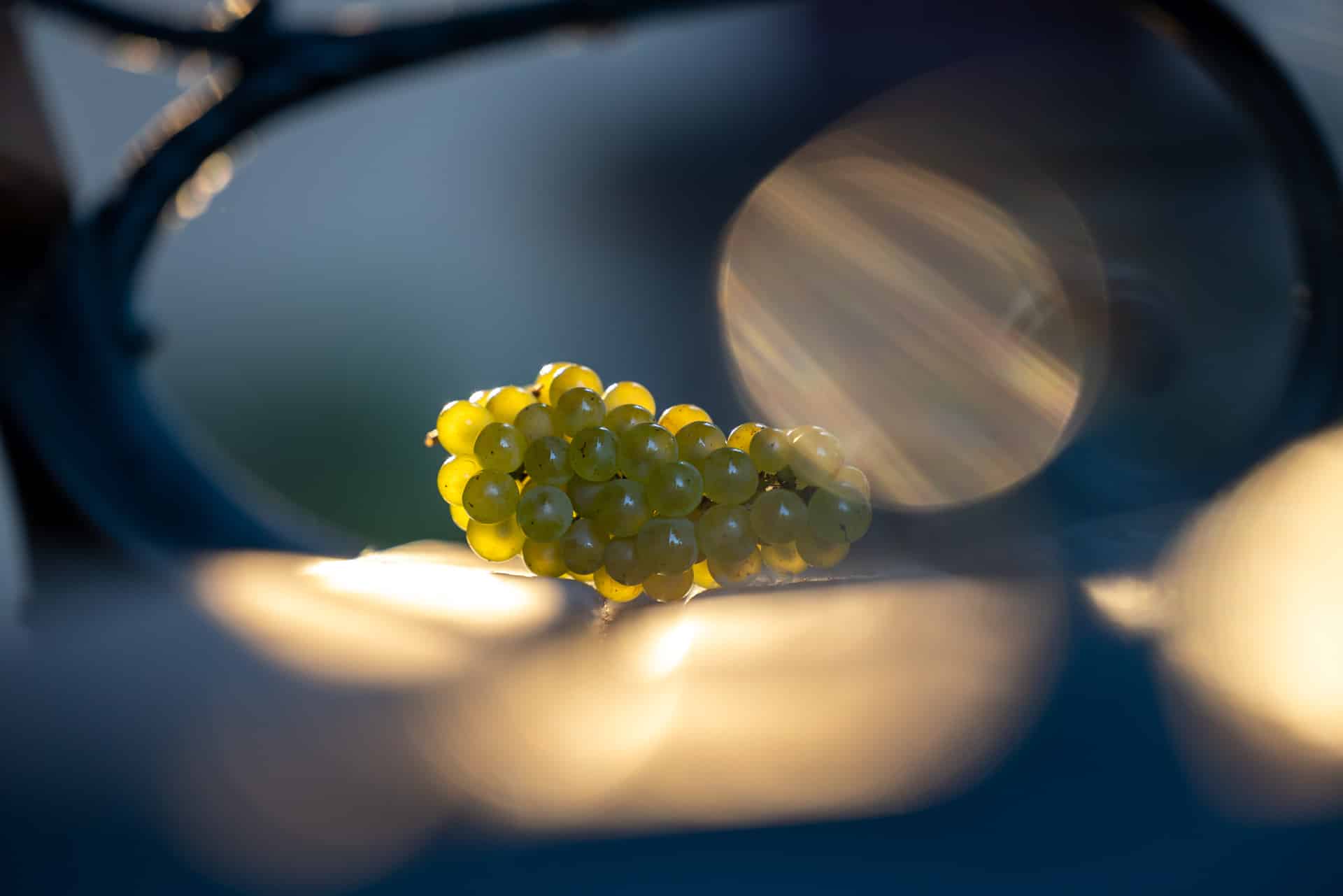Back in Roman times, vines were already being grown in the Beaujolais region. It’s even said that the Juliénas cru was named after Julius Caesar. But it was in the Middle Ages that the region’s wines really began to make a name for themselves. And it’s a story that involves a number of famous people.
The Lords of Beaujeu or the advent of Beaujolais
The Beaujolais winegrowing area really started to become well-known thanks to the Lords of Beaujeu. One of them, Bérard, became known from around 957 for his wine trading. The Lords of Beaujeu gave their name to the area and contributed to its aura. Beaujeu was the capital of the Beaujolais region up until 1514, when it was replaced by Villefranche-sur-Saône.
Wine production at the time was marginal compared to other crops. It wasn’t until the 17th century that winegrowing here really expanded.
Pulliat and Vermorel: saviours of the vines
In the 19th century, Victor Pulliat played a major role in the rebirth of the vines that had been decimated by phylloxera. It was in Chiroubles that he studied different ways of eradicating the insect. His research took him all around Europe carrying out graft tests. The vines were saved after he advocated the grafting of American rootstock.
Today his memory is still honoured in the region. The Victor Pullliat Prize is awarded to the best vintages in each of the 10 Beaujolais crus at the annual Fête des Crus.
The name Victor Vermorel is associated with the fight against mildew. In the late 19th century, he started experimenting in the family workshop in Villefranche-sur-Saône. He is mostly known for creating a Bordeaux mixture spray to rid the vines of this particular disease.
The fathers of Beaujolais Nouveau
In the 20th century the sheer energy of men such as Louis Bréchard, a winegrower and MP, Léon Foillard, wine merchant and founder of the Compagnons du Beaujolais (Beaujolais Guild) and Gérard Canard, former director of the Beaujolais professional wine network, contributed to the promotion of Beaujolais Nouveau.
But the undisputed king of this bacchanalian high table is Georges Duboeuf.
Georges Duboeuf and Beaujolais on a global scale
Sometimes nicknamed the “pope” or the “king” of Beaujolais, Georges Dubœuf came from a long line of winegrowers. He settled in 1964 in Romanèche-Thorins to establish his Beaujolais and Mâconnais wine trade. A discerning taster, he had his heart set on revealing the talent of the winegrowers and enhancing the great terroirs. A tireless ambassador for the region, he travelled the world to promote his wines alongside renowned chefs such as Paul Bocuse, Pierre Troisgros and Guy Savoy. He contributed greatly to the reputation of Beaujolais Nouveau by organising major international events. A forerunner in terms of communication, in 1993 he founded the Hameau Dubœuf, a museum dedicated to the vineyards and wine.
Bernard Pivot, local man
And finally there is the local man, Beaujolais lover and champion of the winegrowing
area. Bernard Pivot, writer, man of letters and television presenter, author of the book Dictionnaire amoureux du Vin (Wine Lovers’ Dictionary) and member of the Goncourt Academy, is the co-founder of the Beaujolais Defence Committee.
He often says that Beaujolais is “a wine associated with youth, energy, freshness and with priests or workers’ gardens where there are a few red fruits to be found”.
In an interview with the Lyon Capitale newspaper, he defined Beaujolais as a “wine for the class struggle (…). Wine for Laughing Cow cheese and for crown roast of lamb. Wine to be drunk in local restaurants with old friends and wine to be drunk at family lunches. Wine for a left-wing workers’ sausage stew and wine for the pot-au-feu of the political right. ‘Beaujolpif’ for workers to slurp and Saint-Amour for weddings”.
Take it from Bernard Pivot: there really is a Beaujolais for every occasion and every
personality!






